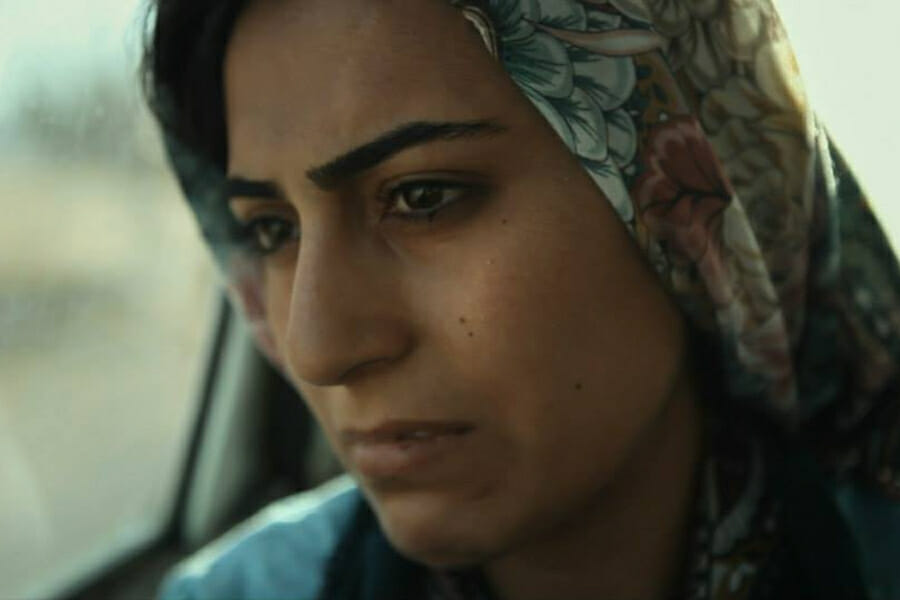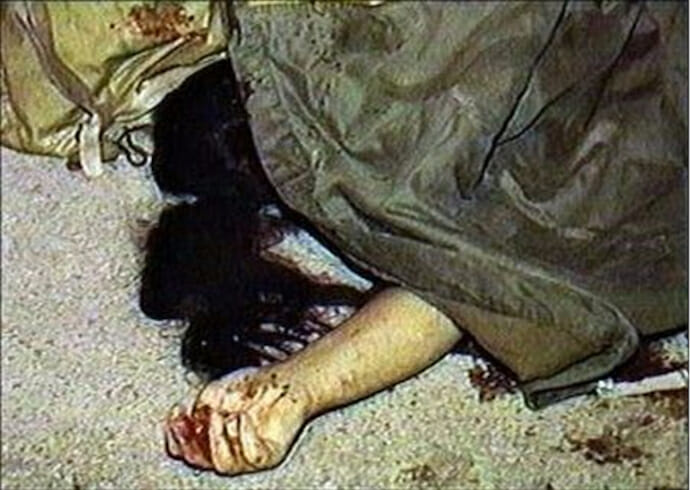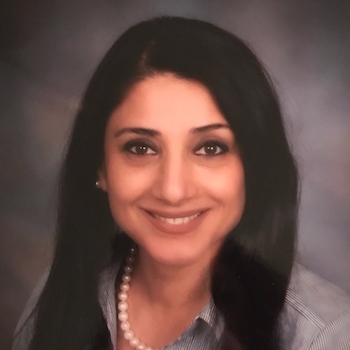
Culture
Honor Killing through Sulaimaniya’s Lens
Violence against women and honor killings are major social problems in Iraqi Kurdistan. The first time I heard about an honor killing, I was a few months shy of becoming a teenager. I was very excited to leave the title “child” and move on to carry the title “teenager.” I was in the kitchen with my mother and my aunt who frequently visited us. I was about to leave the kitchen to give them some privacy to talk, but some of their words tempted me to stay. As I stood there, I said to myself “do not say anything, but listen.” I pretended I was not listening. I heard my mother whispering to my aunt, “Do you know that Aska’s daughter was killed last night?” Shocked, my aunt with a shaky voice uttered “Rezan”? because her other daughter is too young! My mother replied, with noted shock in her tone, “Yes, yes, they killed Rezan.”
Rezan was a divorced nurse and perceived as bringing shame to her family, community and the entire city for wearing too much make-up, smoking, laughing loudly, and interacting with too many men (especially the doctors whom she worked with). As I stood there, my mother continued, “May God forgive me, I am just repeating what I heard. Rezan’s father is very old and ill; he was not aware of what she was doing and he wasn’t able to control her behavior. Rezan’s brother has a developmental disability and he has special needs. Aska couldn’t control Rezan’s behavior either because she was depending on Rezan’s income as she was the breadwinner in the family. She did not want to castigate her behavior because she knew if she disparaged her, Rezan might withhold her much needed support.”
In the months that followed I often heard people in my city “Sulaimaniya” talking about why Rezan was killed, but no one cared to know who killed her or whether the killer was convicted and/or punished. I now know that her death was an honor killing. An honor killing has deep roots and a long history in Kurdish culture. Rezan’s case was the first troubling story and honor killing I was aware of as a child. It shattered my dreams of rushing to become a teenager and a woman, but Rezan’s case also inspired my curiosity to seek answers to several questions regarding honor killing in Iraqi Kurdistan, especially in Sulaimaniya City.
How pervasive is this problem? I wondered. How long has it been going on? How many women are affected? Is anyone working to end it? Who are the forerunners out there in terms of activist groups who are targeting this issue? Are there any other cultural phenomena that have resulted as a positive or negative impact of honor killings? I was interested in understanding the social responses to it, I wanted to identify the enclaves of women who are spearheading quiet underground support networks; the role of social entrepreneurship clusters tackling the economic factors that spur gender-based violence (GBV) and the impact of education and social supports in reducing honor killings.
Kurdish society is patriarchal and the use of violence to maintain male patriarchy is normalized and largely accepted. To obtain answers to my questions, on July 13, 2016 I traveled to Kurdistan and conducted face-to-face interviews with eight organizations, a total of 3 men and 12 women: project managers, directors working in NGOs, women who started NGOs, NGO staff members, journalists and a member of the Iraqi Kurdistan Regional Parliament. I prepared two different sets of open-ended questions, the first set contained ten questions which I directed to the NGO program managers, directors and founders, whereas, the other set I directed to the NGO staff, journalists and other feminist advocates. Having grown up and lived in Kurdistan coupled with my familiarity with the Kurdistan region, especially Sulaimaniya city information collection was easier for me than had I been an outsider. My ability to speak the Kurdish language not only aided the interviewing process, but helped me to build trust and establish an easy rapport with people who are passionate about addressing social problems like honor killing. While in the field and during my interviews, I was treated as someone who was dedicated to solving women issues, much like they saw themselves.
The local NGOs have raised the issue of violence against women and honor killings as a social problem and have demanded decisive solutions. However, all eight organizations are optimistic about their accomplishment in reducing GBV and honor killings. Ms. Osman, general director of People Development Organization in Kurdistan (PDO) stated that her organization has increased their programs and workshops in educating women about their rights. They continuously promote capacity building (practice includes initiatives to support individuals, groups, organizations, and networks) and support women to start micro-credit income generation projects such as, development of entrepreneurial capabilities, financial management skills, and enhance women’s control over decisions and resource allocations. Additionally, they prepare and advise victims of honor killings on how to talk in their hearings, remind them how they are in control, and to tell the truth without any fear in front of the judges.
What makes the PDO different from the other NGOs is their recent focus on Yazidi victims of GBV (oppression, organized rape, sexual assault, and the exchange and selling of girls and women in open markets in different areas of Kurdistan of Iraq and Syria) and their families who were imprisoned by the Islamic State (ISIS). Additionally, the PDO organization is a part of a group called Zhyan (“life”) that strives to bring awareness to people about honor killings, to achieve equality for women, and to fight against violence. Their effect on forced marriage in Kurdistan has been successful. Ms. Osman has claimed that, “many mothers ask: ‘why didn’t the PDO come earlier, my daughter is already married’…As a result, so many other parents are now saying: ‘I’m not going to let my daughter get married unless she graduates from college.’”

Ms. Abdulla, journalist and founder of Work Institute for the Development of Democracy (WID) claimed that her organization takes part in all the important days dedicated to recognize women, especially March 8th, International Women’s Day and November 25th, the refutation day of gender-based violence, when WID participates through writing and interviews on TV and radio. Women now hold high rankings and highly paid business positions in Kurdistan. WID has a project that works towards creating male and female politicians, academically and in a healthy way to take the future of politics in Kurdistan to a different direction. The program includes political science courses with different concentrations such as, systems of government, analysis of political and governmental institutions and establishment of power and resources. The end result of the project is to appoint a very high percentage of women to hold director, advisor and political positions to right the mistakenly held belief that women cannot perform. They want to prove that women can have roles and serve everywhere and at any time.
All eight NGOs expressed the challenges they face. Access to funds and managing organizational financial resources are the primary concerns of most local NGOs, unless they are supported by Kurdish political parties, Ms. Osman claimed. Difficulty in finding sufficient, appropriate and continuous funding can seriously limit a NGO’s resources, projects, and mobilization. Among the eight individuals in senior management positions with access to their local NGOs’ fund, Asuda (directed by Ms. Latif) and DHRD revealed that they meet annually or quarterly with international donors and the Ministry of Finance to allocate a required budget for their local agencies. DHRD’s programs and projects designed to aid victims of GBV and honor killings all depend on unstable funds. The organizations that are trying to protect their independence usually depend on the funds from outside the Kurdistan region. International donors provide budgets to the organizations based on the individual projects. “There will be changes in the donors based on the projects that we have,” Ms. Latif claimed, and that is why they cannot plan for an exact amount of the budget. Their projects are established based on the amount of funding they receive, so there are always budget concerns for these organizations. International NGOs will not risk their money on a possibly unsuccessful project or somewhere in war zone that would create challenges.
Furthermore, sometimes a donor ends funding to an NGO’s project while there are still many critical cases, like honor killings, that have not yet been solved, Ms. Osman claimed.
This great dependency on international donors is not always aligned with the local NGOs’ goals. The majority of the interviewees, including Ms. Jalal from New Life Organization, Mr. Mohammad, Ms. Latif, Ms. Abdula and the parliamentarian Ms. Parwa Ali, remarked that Sulaimaniya’s local NGO projects are now temporary, short-term or unfinished because of funding issues. All eight NGOs’ financial managers complain about the funds allocated to Sulaimaniya based organizations. They believe that most of the U.S. and European donors provide funds to Erbil’s and Duhok’s local NGOs, whereas they provide very little support to Sulaimaniya’s NGOs. They suggest that the reason for unequal support to the cities is related to instability in the political field. Ms. Jalal remarked that the donors think that the cities of Erbil and Duhok are safer and more stable than other parts of Kurdistan. Another weak element is the competition for funding and resources among the local NGOs, which may undermine the reputation and the effectiveness of NGO activities at the community level. My findings show that Sulaimaniya’s local NGOs’ ability to implement their projects, especially fighting honor killings, may also be hindered because of reasons other than funding.
Lack of strategic planning prevents many local NGOs from achieving ownership over their mission. Along with Ms. Latif, Ms. Abdulla also claimed that only a few organizations like Asuda, WID and DHRD disclose their strategic planning to people in Kurdistan. They claimed that not having solid mechanisms in place makes an organization looks vulnerable to donors and makes it difficult to measure their impact over time. The Asuda organization has research programs as well as strategic planning because they believe that they should identify the specific problem before they start any project.
There is a lack of collaboration and team-work among some of Sulaimaniya’s local NGOs, particularly, the women directors and project managers. Although, Asuda, PDO and DHRD expressed their work with other NGOs as positive and collaborative, nevertheless, Ms. Jalal claimed that they have tried to establish some networks with other local NGOs that are defending women’s rights, but have been unsuccessful in their attempts. Ms. Ali also expressed her disappointment about some organizations’ behaviors and unwillingness to collaborate. She particularly referred to an honor killing case where they planned to gather as many women activists as possible to participate in the burial of a victim of honor killings, however, one organization’s director (I choose not to mention the organization’s name) changed the time of the burial to exclude the participation of the organizations she did not like or did not get along with, including Ms. Ali’s. When the women from other organizations arrived at the cemetery, the body was already buried. This is thought to be result from conflict over who would receive credit for the work.
Poor networking among some local NGOs is another major challenge that can cause the duplication of work and conflicting strategies at the community level: withholding information and documents from each other makes the local NGOs and feminist/advocates’ situation worse. Moreover, some NGOs refuse to ask for assistance and instructions from experts and other local NGOs.
Lack of safety/security mechanisms in the entire Kurdistan region, particularly within the local NGOs, is everyone’s concern. The safety and security of the organizations’ staffs and feminist/advocates must be at the highest level of each organization’s priorities. In the past few years, the presence of ISIS in the Iraqi Kurdistan region has resulted in financial, security, and political crises. All eight local NGOs have security and safety worries even though guards are assigned to their work places (buildings and offices); however, staff often do not always work in one area and may travel to different Kurdish arenas. Also, some NGOs like Asuda, installed surveillance cameras after they were threatened and a member of their staff was shot. This has resulted in a decrease in NGO developmental projects; for example, Asuda’s projects have gone from 8 in previous years to 3 projects a year. The NGOs have a direct duty to care for their staffs and, in many cases, for the victims they service in shelters.
Women organizations, like other organizations in the Iraqi Kurdistan region, have been divided between and shadowed behind the Kurdish political parties. Ms. Ali confirmed that currently, there are more than 2,800 civil society organizations (Kurdish, Iraqi, and Foreign) that have been formally registered in the Department of NGOs, of the Iraqi
Kurdistan Regional Government (KRG). How many of these organizations have obtained statistical data of victims of GBV and honor killings? The current available information about violence against women and the statistics of honor killings are based on studies conducted after the invasion of Iraq. There are no previous accurate statistics to compare with current statistics of GBV and honor killings in Kurdistan/in the city of Sulaimaniya. Nevertheless, I could obtain some current statistics from a few participants that collectively give us some idea of the severity of GBV and honor killings in Sulaimaniya and some surrounding cities. According to Zhin (Woman) magazine, published on December 2015 in Sulaimaniya, between the month of January and August 2015, in the three main provinces of Kurdistan (Sulaimaniya, Erbil, and Dukoh), there were a total of 122 cases of honor killings, while there were 124 cases of suicide, self-immolation (burning and hanging). Unfortunately, there were 366 cases of sexual assault and rape. However, Zhin’s table of comparison among the years 2013-2015 shows that the level of GBV and honor killings have increased, and the crime rate in Sulaimaniya was higher than the two other major cities: within eight months, 690 cases of different types of crimes in Sulaimaniya, 470 cases in Erbil, and 280 cases in Dukoh occurred. The Statistic of Violence against Women in the Legal Framework, published by PDO, shows in the month of January 2015, only in “Sulaimaniya,” there were no honor killing death cases, three attempted honor killings, and 20 threats of killing. Additionally, per Mr. Ali from Heartland Alliance International Organization (HAI), statistics show that the suicide rate among women in Kurdistan is ten times the rate of American women aged 15-30, with about 220 women burning themselves to death each year. In almost all suicide attempts, gender-based violence and forced marriage were the triggers.
The women in Kurdistan’s local NGOs continue to provide several programs and workshops to educate women about their rights, raise awareness around social issues, and promote gender equality in Kurdistan. However, most of their programs will not have promising outcomes without solid frameworks. After unsuccessful attempts to influence KRG and the international NGOs for support, they persist in pushing for revision of current laws that create barriers, creation of new laws that would facilitate their work, and investigation of all violence and crime cases against women, to bring justice to victims of GBV and honor killings. Most of the advocates believe that their organizations offer unique and dynamic services to victims of honor killings, but they still have an enormous effort to undertake and difficult barriers to break to win the battle against GBV and honor killings. They have proven themselves to be successful in ameliorating conditions, and in continuing to serve their missions regardless of nearly insurmountable barriers. However, to continue to progress, there must be enhanced collaboration, facilitated strategic planning, greater international support, fortified security and safety, and more reliable funding streams. I remain hopeful.

